History/ES 247 Reading Guide
The Ecological Impact of the Contact of Cultures
- William Cronon, Changes in the Land: Indians, Colonists, and the Ecology of New England (1983; revised ed. 2003). Note: read the Afterword: The Book That Almost Wasn't from the 2003 edition (.pdf)
- James Eric Francis, Sr., “Burnt Harvest: Penobscot People and Fire,” Maine History 44.1 (2008), 5-18. (e-reserve)
Cronon offers a remarkable description and analysis of the ecological transformation of New England between 1600 and 1800, as a Euro-American system of settlement and land and resource use slowly but surely replaced a Native American system.
- Why did the European system come to dominate? How and why did Native Americans become involved in the various aspects of the Euro-American economic system? [Note: consider this question from an economic, political, cultural, and social perspective.]
- Since, as Cronon argues, human communities are also ecological relationships, what were the consequences of this cultural shift for the environment? How did the landscape change, and why?
- How does his interpretation compare and contrast with Carolyn Merchant’s three-stage model of ecological revolutions (from native American to colonial to capitalist)? How does his “narrative analytical structure” (180) lend itself to a more complex account and interpretation?
- His account focuses largely on southern New England; in that region many of the processes were simultaneous. However, he also describes the contrasting experiences of and interactions between Native Americans and Euro-Americans in Maine and northern New England. How might we pull that evidence together to characterize the evolution in northern New England? Were the changes and interactions simultaneous or was there a different or clearer chronological order in northern New England?
Postcards:
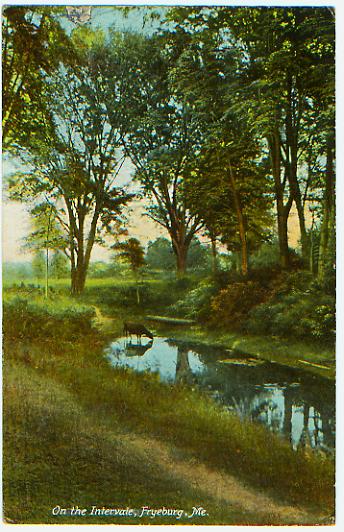
On the Intervale, Fryeburg, Me. (c. 1908)
- Bertha is doing fine all are well it is dry as ever here no rain at all Mama
“A World of Fields and Fences”:
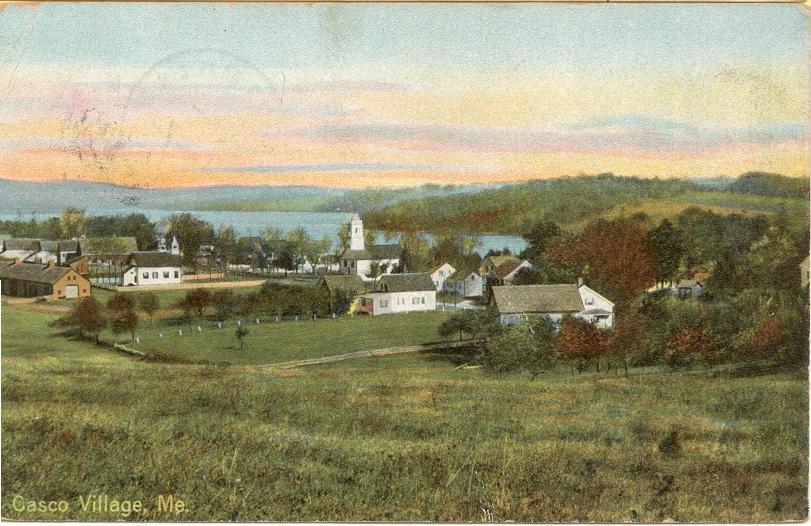
Casco Village, Me. (c. 1907)
- We rolled into our quarters “bag & baggage” between showers and did not get a bit wet. We are very well settled and may begin our vacation soon. I heard a Mr. Frost speak, a student at Bates, supplying here, at prayer meeting last night. In the school ledge room is a grind stone that has been given to me. Will you get it over to the Grand Trunk for Mr. Holden.
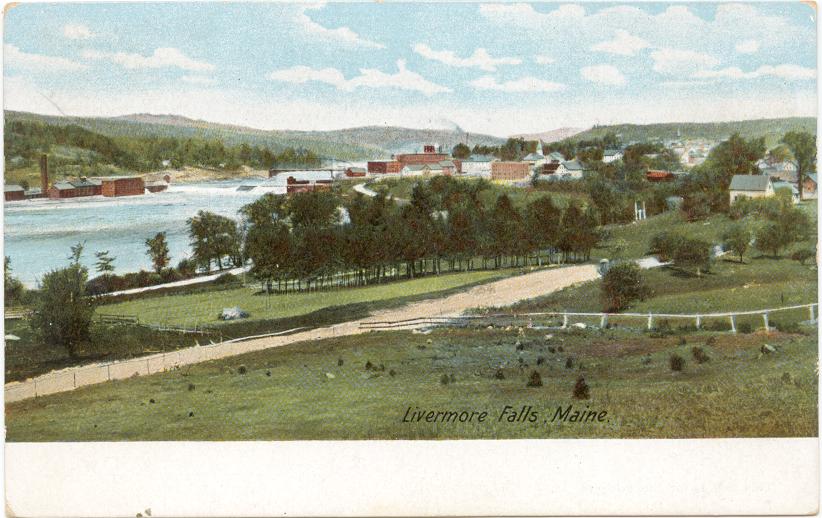
Livermore Falls, Maine (c. 1905)
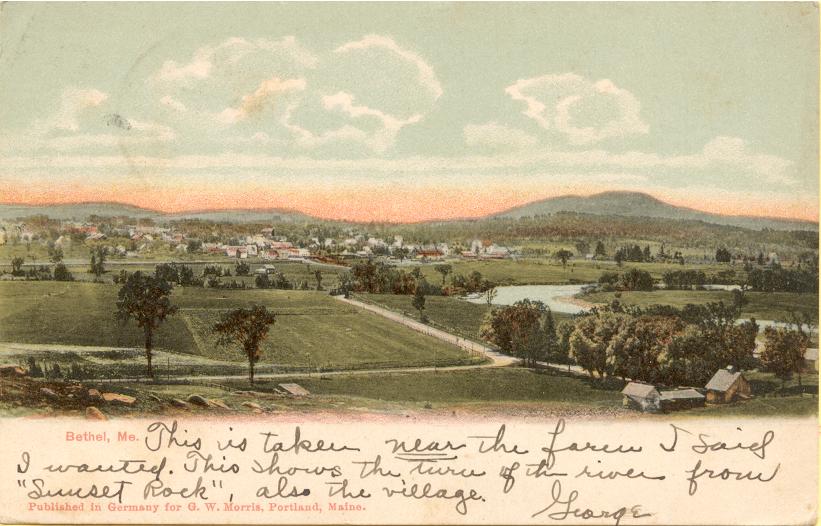
Bethel, Me. (c. 1907)
- This is taken near the farm I said I wanted. This shows the turn of the river from “Sunset Rock”, also the village. George
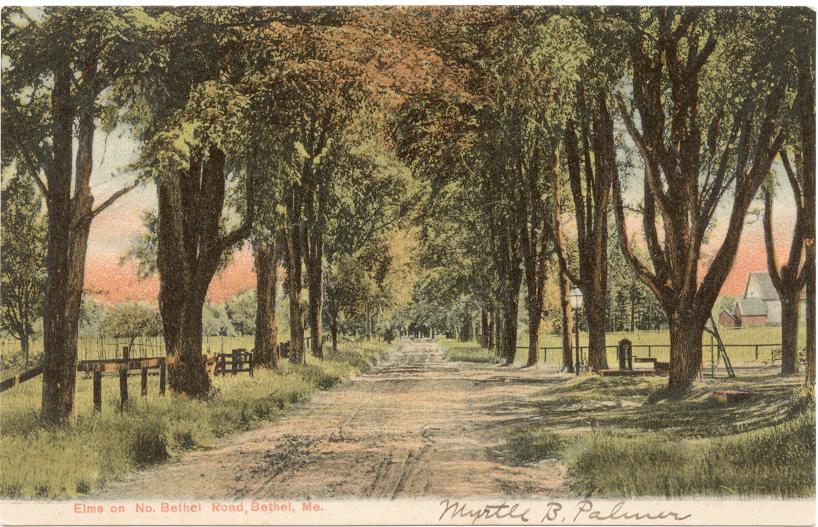
Elms on No. Bethel Road, Bethel, Me. (c. 1907)
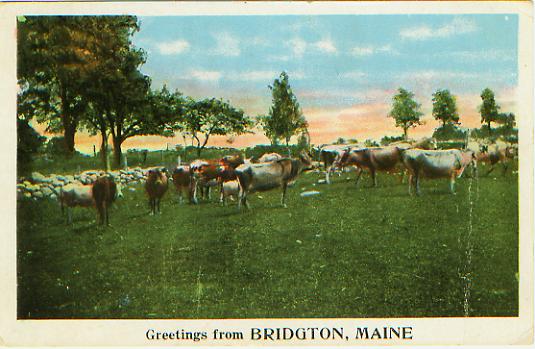
Greetings from BRIDGTON, MAINE (c. 1922)
Link to Birdseye Views of more Maine Towns.
